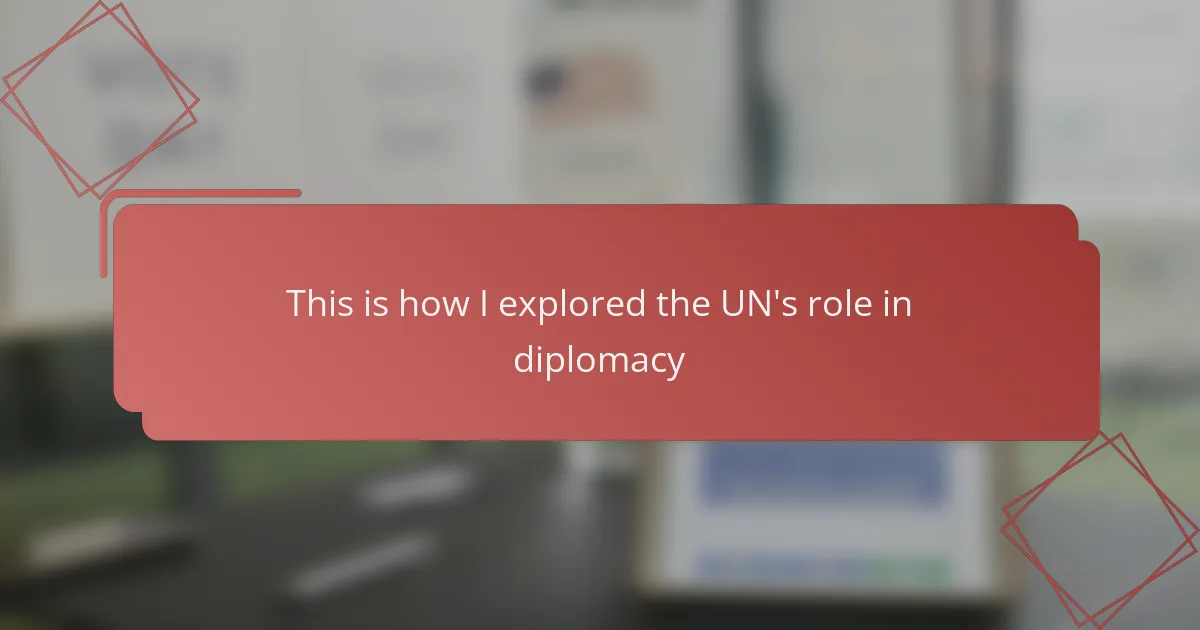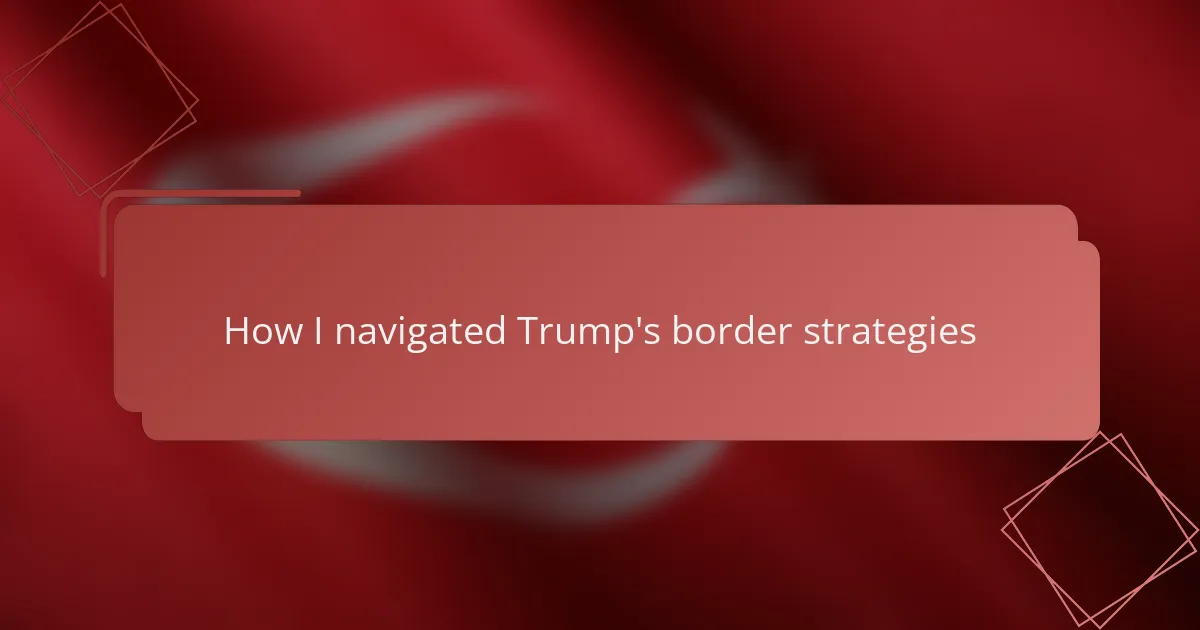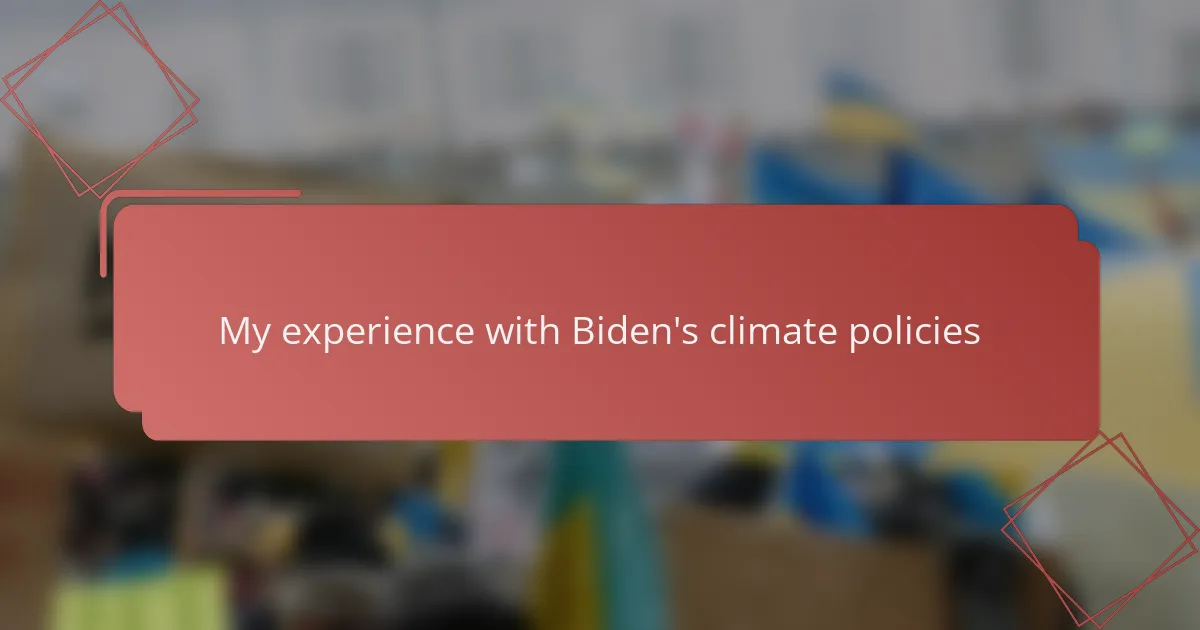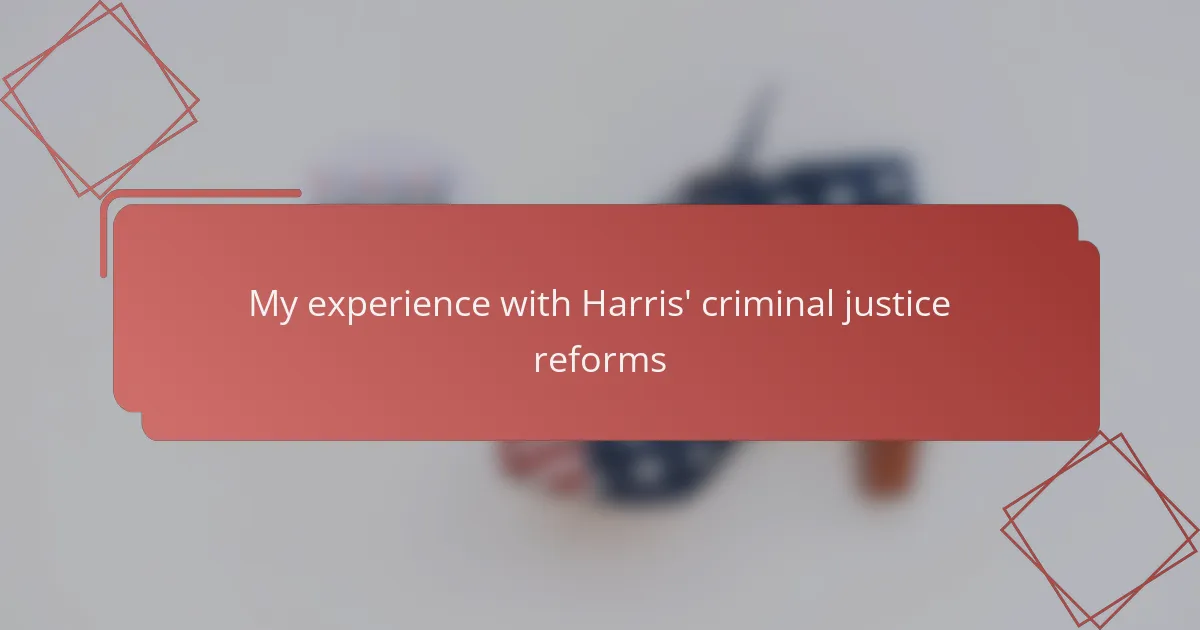Key takeaways
- Political satire in diplomacy highlights hypocrisy and humanizes complex negotiations, easing tensions during deadlocks.
- The UN serves as a vital platform for dialogue among nations, despite its portrayal in satire as inefficient and bureaucratically slow.
- Methods for analyzing satire include content and contextual analysis, focusing on symbolism, tone, and audience reception.
- Insights from satire reveal the contradictions of diplomacy, showing how humor can expose underlying tensions in international relations.
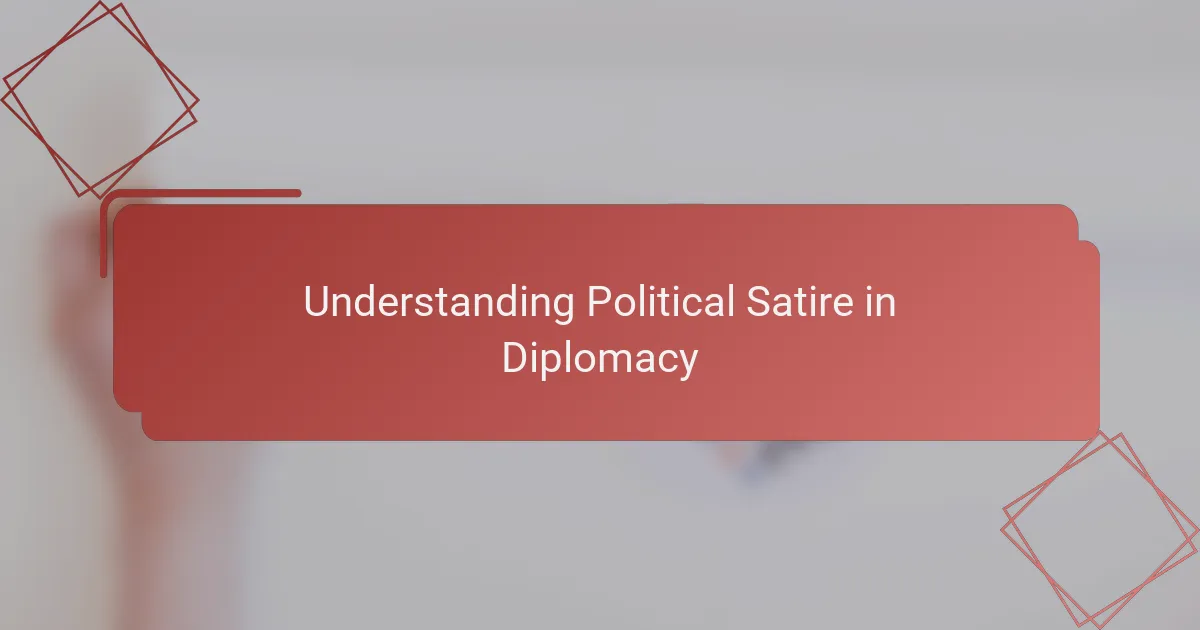
Understanding Political Satire in Diplomacy
Political satire in diplomacy often strips away the formal veneer to reveal the absurdity lurking beneath high-stakes negotiations. When I first dove into this topic, it struck me how humor becomes a subtle weapon, easing tensions while spotlighting contradictions in international relations. It’s fascinating how satire acts as both a mirror and a magnifying glass, reflecting reality and exaggerating flaws to provoke thought.
Through my exploration, I noticed that satire also serves as a coping mechanism for diplomats and observers alike. In moments of frustration or deadlock, a well-placed joke or caricature can break the ice, humanizing the often distant realm of diplomacy. Here’s what I found to be the key elements of political satire in diplomacy:
- Exposes hypocrisy and double standards among nations
- Highlights the performative nature of diplomatic rituals
- Uses irony and exaggeration to critique policy and diplomacy
- Acts as a relief valve during tense international moments
- Engages the public by making complex issues accessible and relatable
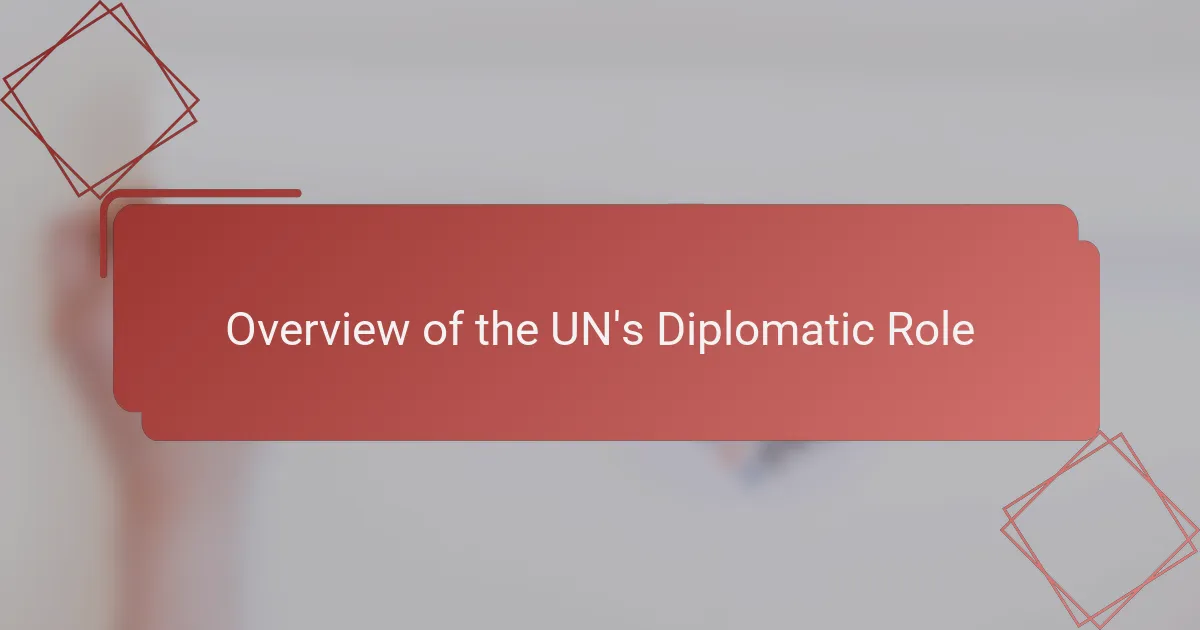
Overview of the UN’s Diplomatic Role
When I first examined the UN’s role in diplomacy, I realized it’s a complex web of peacekeeping, negotiation, and conflict resolution. The organization acts as a global mediator, striving to keep dialogue open even when tensions seem insurmountable. Have you ever wondered how the UN manages to hold countries together despite their competing interests?
From my experience, the UN’s strength lies in its ability to convene almost every nation under one roof, providing a neutral platform for conversation. Yet, this process is anything but straightforward—diplomacy here feels like a delicate dance, balancing power, principles, and politics. It’s no surprise that satire often finds rich material in these intricate negotiations.
What struck me was how the UN’s diplomatic efforts sometimes border on the theatrical, with formal speeches followed by backroom dealings. This blend of solemnity and strategy can be both inspiring and, frankly, a bit absurd. Understanding this gave me a deeper appreciation for the challenges diplomats face and why political satire plays such a crucial role in unpacking their work.
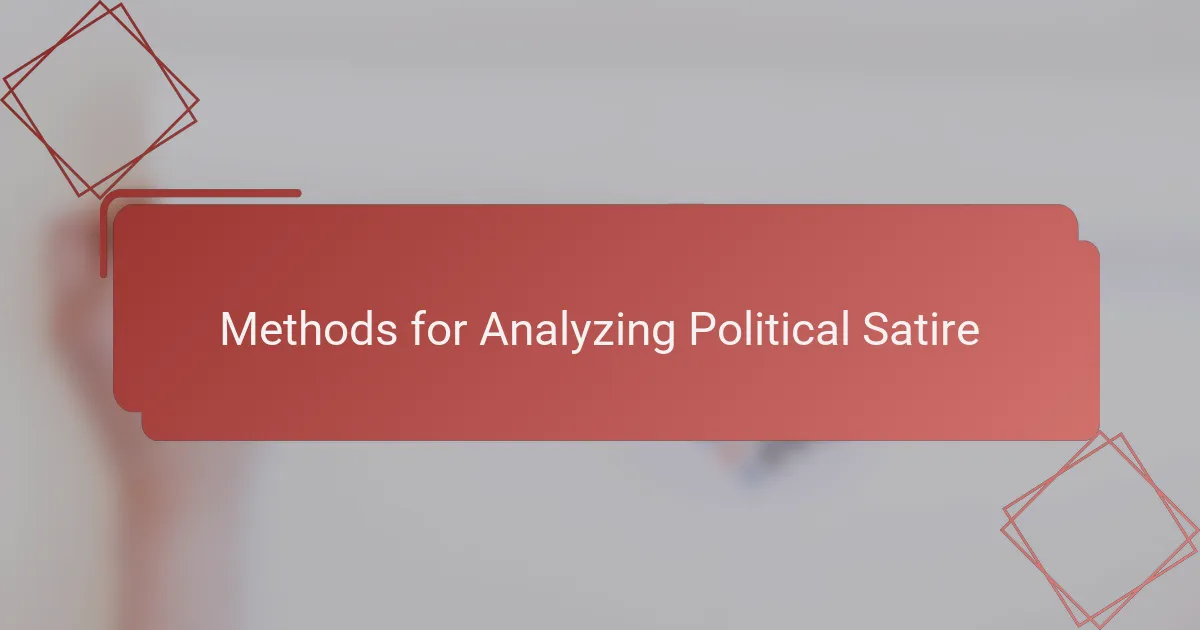
Methods for Analyzing Political Satire
Methods for Analyzing Political Satire often depend on dissecting both the content and context. From my experience, focusing on symbolism and tone reveals layers beneath the humor, exposing underlying political critiques. It’s fascinating how satire uses exaggeration to spark reflection, which I found particularly true when exploring the UN’s diplomatic role in satire.
| Method | Key Aspect |
|---|---|
| Content Analysis | Examines language, irony, and symbolism to uncover hidden meanings. |
| Contextual Analysis | Considers historical and political background to interpret satire’s relevance. |
| Audience Reception | Looks at how different groups perceive satire, affecting its impact and message. |
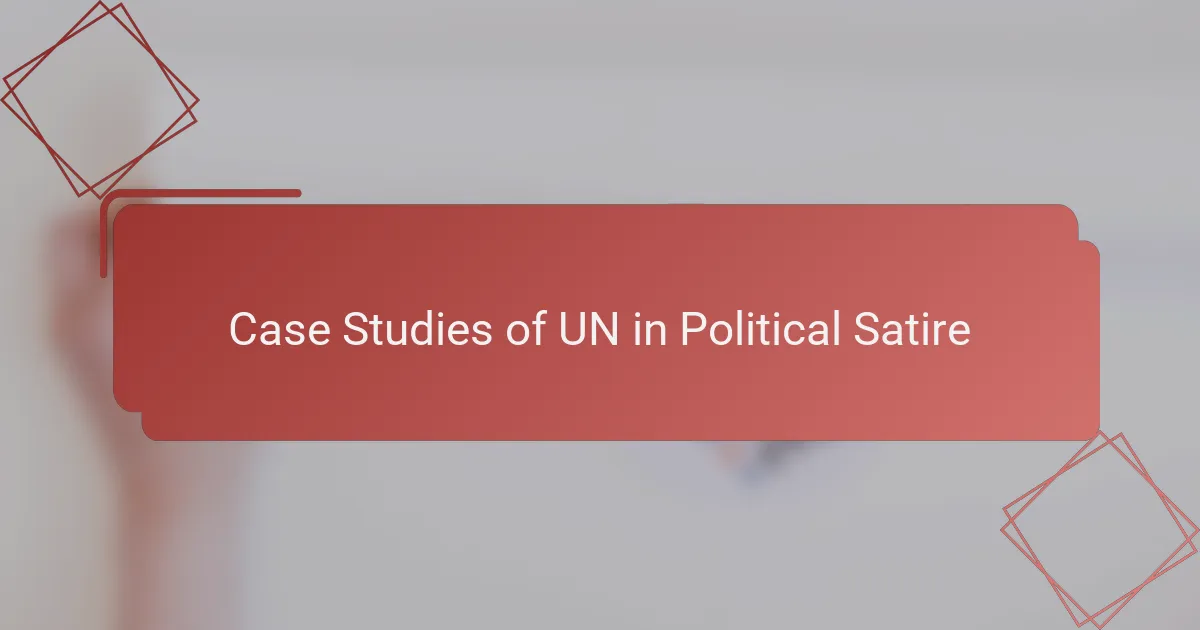
Case Studies of UN in Political Satire
Case Studies of UN in Political Satire
Diving into political satire around the UN, I noticed how comedians often paint the organization as a well-meaning but bumbling giant. For example, satire frequently mocks the Security Council’s veto powers, showcasing the paralysis it causes in decision-making. These portrayals, while humorous, made me reflect on the genuine frustrations diplomats must feel when real crises stall despite earnest efforts.
| Satirical Portrayal | Real UN Role |
|---|---|
| Security Council paralysis | Decisions require consensus, causing delays |
| UN peacekeepers as ineffective | Peacekeepers face complex, high-risk missions |
| General Assembly as a talking shop | Platform for global dialogue, even among rivals |
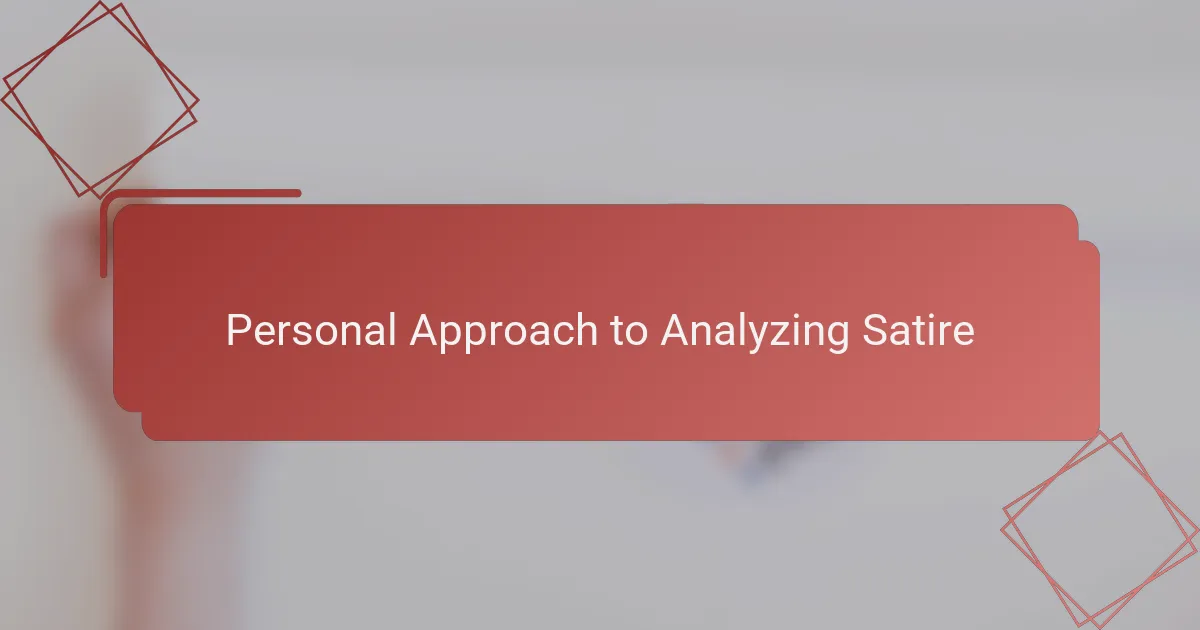
Personal Approach to Analyzing Satire
When I first dove into analyzing satire about the UN’s role in diplomacy, I realized that humor often masks deeper truths. I remember watching a satirical sketch that made me laugh, but it also sparked a nagging curiosity—was the satire highlighting real frustrations with bureaucracy or just aiming for a cheap laugh?
My approach has been to dissect the layers beneath the jokes, using a mix of political knowledge and emotional intuition. I ask myself: What part of the UN’s diplomatic work is being critiqued here? Does the satire reveal genuine challenges, like inefficiency or power struggles? Here’s how I break it down:
- Identify the specific diplomatic issues the satire targets (e.g., negotiation deadlocks, veto power misuse)
- Analyze the tone—is it harsh, playful, sarcastic? How does that influence the message?
- Reflect on my own emotional response to the humor; did I feel frustration, amusement, or skepticism?
- Consider historical and current examples of UN diplomacy to gauge the satire’s accuracy
- Look for recurring themes that suggest broader societal critiques beyond just the UN

Insights Gained from the Analysis
Insights Gained from the Analysis
Reflecting on how the UN is portrayed in political satire, I realized satire often strips away diplomacy’s polished surface to expose its awkward power plays and contradictions. It made me think, sometimes humor reveals truth more bluntly than formal debates ever could. In my experience diving into these portrayals, I felt a mix of amusement and frustration at how the UN’s lofty ideals clash with the messy realities of global politics.
| Aspect | Traditional UN Diplomacy | Satirical Portrayal |
|---|---|---|
| Purpose | Peacekeeping, mediation, international law | Often depicted as bureaucratically slow and ineffectual |
| Image | Serious institution upholding global order | Comically pompous, struggling with member states’ selfish interests |
| Decision Making | Consensus-driven, careful negotiation | Parodied as endless, tedious, and fruitless meetings |
| Power Dynamics | Influenced by major powers, aiming for collective security | Mocks the disproportionate influence of powerful nations dominating discussions |
